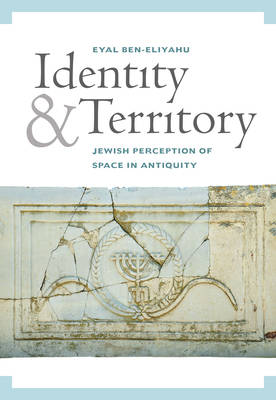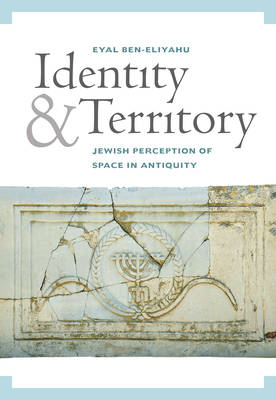
Door een staking bij bpost kan je online bestelling op dit moment iets langer onderweg zijn dan voorzien. Dringend iets nodig? Onze winkels ontvangen jou met open armen!
- Afhalen na 1 uur in een winkel met voorraad
- Gratis thuislevering in België vanaf € 30
- Ruim aanbod met 7 miljoen producten
Door een staking bij bpost kan je online bestelling op dit moment iets langer onderweg zijn dan voorzien. Dringend iets nodig? Onze winkels ontvangen jou met open armen!
- Afhalen na 1 uur in een winkel met voorraad
- Gratis thuislevering in België vanaf € 30
- Ruim aanbod met 7 miljoen producten
Zoeken
€ 161,45
+ 322 punten
Omschrijving
Throughout history, the relationship between Jews and their land has been a vibrant, much-debated topic within the Jewish world and in international political discourse. Identity and Territory explores how ancient conceptions of Israel--of both the land itself and its shifting frontiers and borders--have played a decisive role in forming national and religious identities across the millennia. Through the works of Second Temple period Jews and rabbinic literature, Eyal Ben-Eliyahu examines the role of territorial status, boundaries, mental maps, and holy sites, drawing comparisons to popular Jewish and Christian perceptions of space. Showing how space defines nationhood and how Jewish identity influences perceptions of space, Ben-Eliyahu uncovers varied understandings of the land that resonate with contemporary views of the relationship between territory and ideology.
Specificaties
Betrokkenen
- Auteur(s):
- Uitgeverij:
Inhoud
- Aantal bladzijden:
- 216
- Taal:
- Engels
Eigenschappen
- Productcode (EAN):
- 9780520293601
- Verschijningsdatum:
- 30/04/2019
- Uitvoering:
- Hardcover
- Formaat:
- Genaaid
- Afmetingen:
- 157 mm x 231 mm
- Gewicht:
- 430 g

Alleen bij Standaard Boekhandel
+ 322 punten op je klantenkaart van Standaard Boekhandel
Beoordelingen
We publiceren alleen reviews die voldoen aan de voorwaarden voor reviews. Bekijk onze voorwaarden voor reviews.











